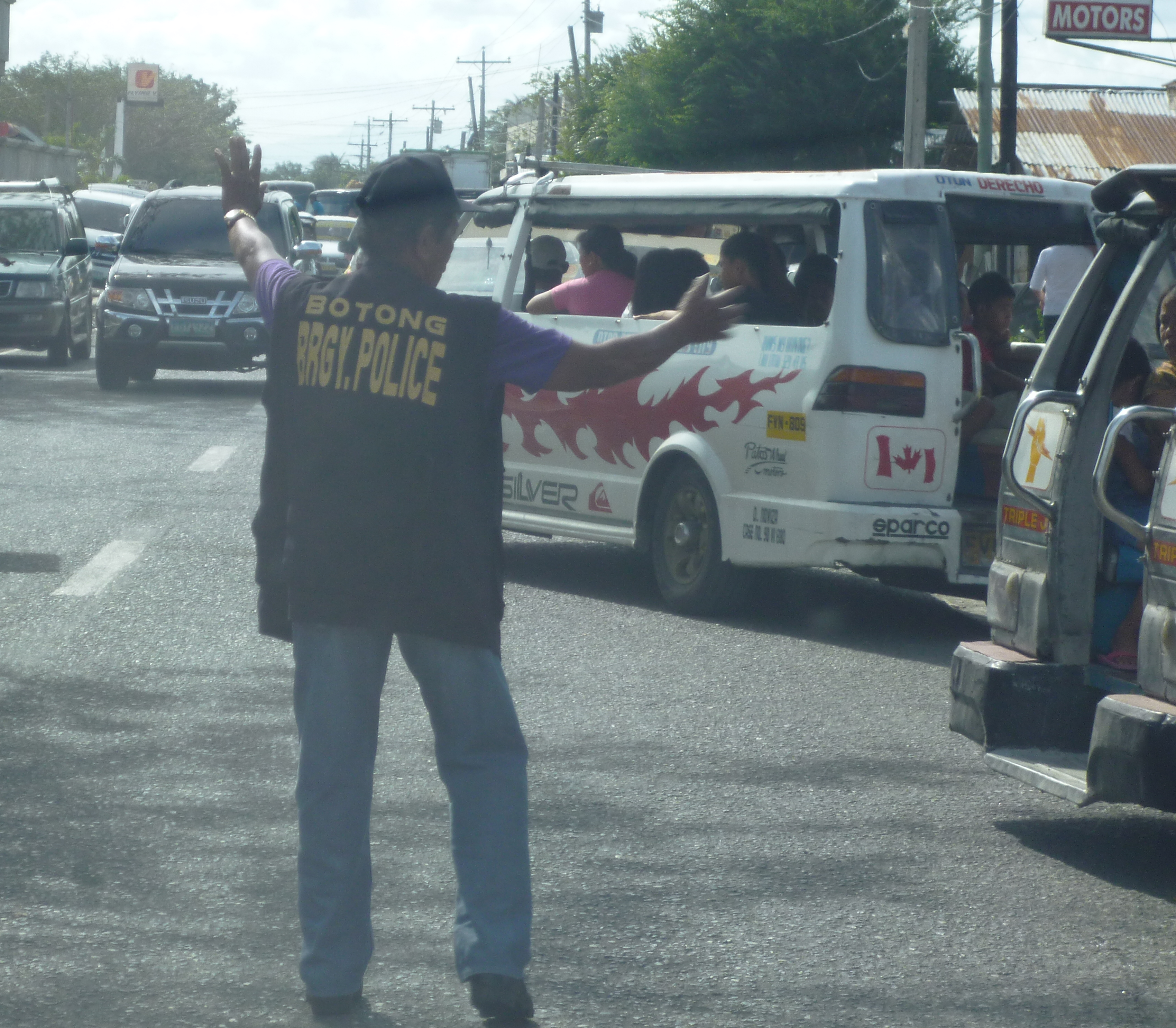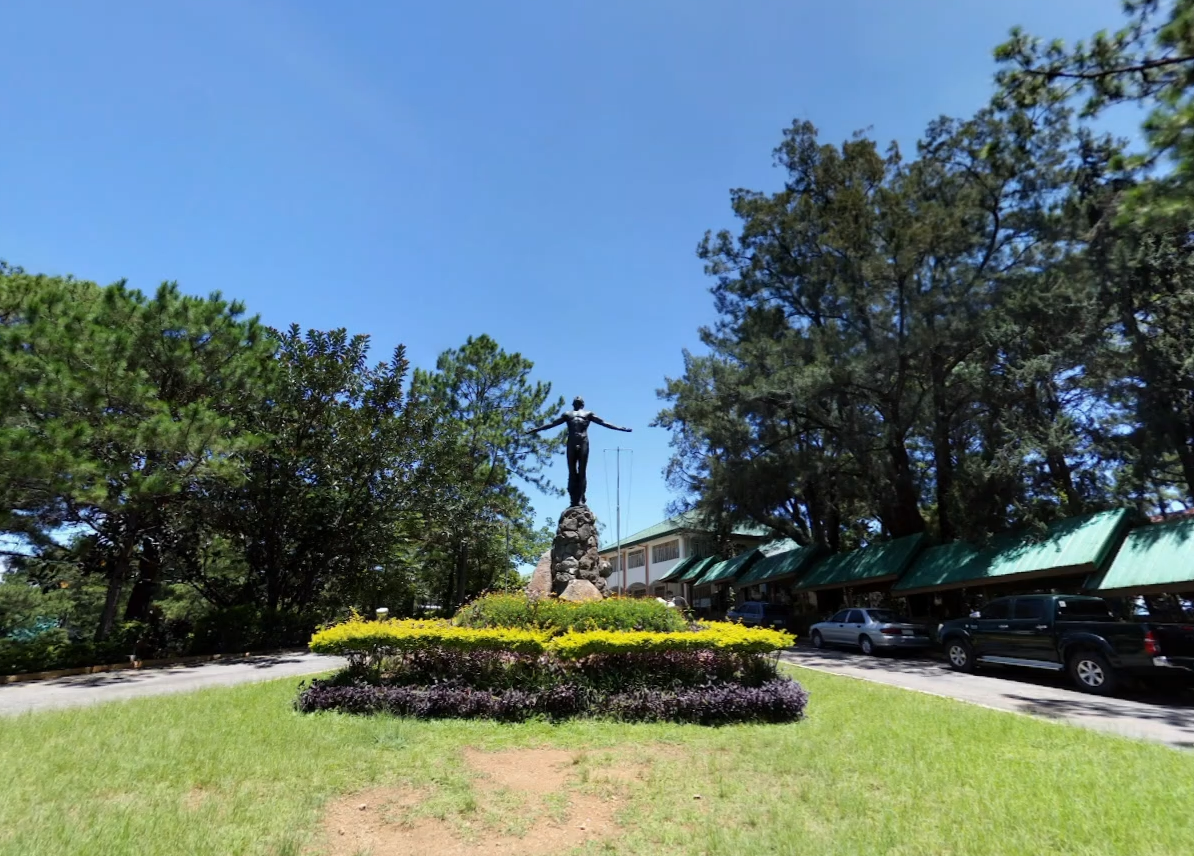|
University Of The Philippines Diliman Police
The University of the Philippines Diliman Police (UPDP) is the campus police of the Diliman campus of the University of the Philippines in Quezon City, Philippines. The police force is not a part of the national government's Philippine National Police. Role and responsibilities The UP Diliman Police is a police force which operates within the Diliman campus of the University of the Philippines. It was established in 1977 by the university's board of regent, replacing the UP Security Division. The organization conducts typical law enforcement practices within the campus including enforcing rules and regulations, maintaining public order, and conducting investigations on crime reports. The UP Diliman Police also conducts intelligence work, typically related to rumors regarding inter-fraternity conflicts. The university police also has the power of arrest within the campus. The most common crime the campus police deals with is theft. Relations National government The UP Diliman ... [...More Info...] [...Related Items...] OR: [Wikipedia] [Google] [Baidu] |
Barangay
A barangay (; abbreviated as Brgy. or Bgy.), historically referred to as barrio (abbreviated as Bo.), is the smallest administrative division in the Philippines and is the native Filipino term for a village, district, or ward. In metropolitan areas, the term often refers to an inner city neighborhood, a suburb, or a suburban neighborhood or even a borough. The word ''barangay'' originated from ''balangay'', a type of boat used by a group of Austronesian peoples when they migrated to the Philippines. Municipalities and cities in the Philippines are politically subdivided into barangays, with the exception of the municipalities of Adams in Ilocos Norte and Kalayaan in Palawan, with each containing a single barangay. Barangays are sometimes informally subdivided into smaller areas called ''purok'' ( en, "wikt:zone, zone"), or barangay zones consisting of a cluster of houses for organizational purposes, and ''sitios'', which are territorial enclaves—usually rural—far from t ... [...More Info...] [...Related Items...] OR: [Wikipedia] [Google] [Baidu] |
Tanod
A barangay tanod, also known as a barangay police officer – and sometimes as BPSO (which can stand for barangay public safety officer, barangay peacekeeping and security officer, or barangay police safety officer) – is the lowest level of law enforcement officer in the Philippines. He is a watchman for a barangay who is supervised by the barangay captain and performs a variety of police functions. Tanods are "front liners in the preparation and response to any type of atrocities, public disorders, emergencies and even disasters or man-made calamities that threaten peace and order and public safety." They may be unarmed or armed with a baton or bolo knife (a type of machete). Duties While tanods cooperate with the Philippine National Police (PNP), they are not a part of the PNP. They do not have the same authority as police officers. Rather, tanods augment the police and fulfill "certain functions which the police force cannot immediately discharge especially with respect ... [...More Info...] [...Related Items...] OR: [Wikipedia] [Google] [Baidu] |
Department Of National Defense (Philippines)
The Department of National Defense (DND; fil, Kagawaran ng Tanggulang Pambansa, ''KTP'') is the executive department of the Philippine government responsible for guarding against external and internal threats to peace and security in the country. The Department of National Defense exercises executive supervision over the Armed Forces of the Philippines (AFP), the Office of Civil Defense (OCD), the Philippine Veterans Affairs Office (PVAO), the National Defense College of the Philippines (NDCP), the Government Arsenal (GA), and Veterans Memorial Medical Center (VMMC). It is also responsible for disaster preparation and management in the country. It is headed by the Secretary of National Defense, who is a member of the President's cabinet. The current OIC of the National Defense of the Philippines is Jose Faustino Jr. as of June 30, 2022. History The Department of National Defense or DND was formally organised on November 1, 1939, pursuant to ''Executive Order No. 230'' of P ... [...More Info...] [...Related Items...] OR: [Wikipedia] [Google] [Baidu] |
1989 University Of The Philippines–Department Of National Defense Accord
The 1989 University of the Philippines–Department of National Defense accord (UP–DND accord) was a bilateral agreement between the Department of National Defense (DND) and the University of the Philippines (UP) that restricted military and police access and operations inside the university. Background On October 28, 1981, an agreement between then-UP student leader Sonia Soto and then-defense minister Juan Ponce Enrile, known as the Soto–Enrile accord, was signed to protect students from the presence of the military and police in any of UP's campuses. On June 16, 1989, Donato Continente, a staffer of ''The Philippine Collegian'' and an alleged communist, was arrested within the premises of the university for his involvement in the killing of US Army Col. James Nicholas Rowe on April 21, 1989. The Supreme Court of the Philippines later shortened Continente's jail sentence, releasing him on June 28, 2005, after being incarcerated for over 14 years. Continente pled not gu ... [...More Info...] [...Related Items...] OR: [Wikipedia] [Google] [Baidu] |
National Police Commission (Philippines)
The National Police Commission (NAPOLCOM; fil, Pambansang Komisyon ng Pulisya) is an agency attached to the Department of the Interior and Local Government (DILG) responsible for the administration and control of the Philippine National Police (PNP). It has the authority to administer police entrance examination, to investigate police anomalies and irregularities, and to summarily dismiss erring police officers. History The NAPOLCOM traces its roots from the creation of the Police Commission (POLCOM) under ''Republic Act 4864'' (Police Act of 1966). It was reorganized as the National Police Commission (NAPOLCOM) in 1972. The NAPOLCOM was under the Office of the President before being transferred to the Ministry of National Defense in 1975 by virtue of ''Presidential Decree 765'' (Police Integration Law). In 1980, the agency was returned to the Office of the President by ''Executive Order No. 1040''. In 1990, with the establishment of the Philippine National Police (PNP), t ... [...More Info...] [...Related Items...] OR: [Wikipedia] [Google] [Baidu] |
Power Of Arrest
The power of arrest is a mandate given by a central authority that allows an individual to remove a criminal's (or suspected criminal's) liberty. The power of arrest can also be used to protect a person, or persons from harm or to protect damage to property. However, in many countries, a person also has powers of arrest under citizen's arrest or any person arrest / breach of the peace arrest powers. Individuals with powers of arrest Originally, powers of arrest were confined to sheriffs in England for a local area. Over the past few hundred years, the legal power of arrest has gradually expanded to include a large number of people/officials, the majority of which have come to the fore more recently. These various individuals all may utilise similar or different powers of arrest, but generally adhere to one particular field. The individuals below have been listed in order of when the power of arrest became available to the individual, starting from the earliest. United Kingdom E ... [...More Info...] [...Related Items...] OR: [Wikipedia] [Google] [Baidu] |
Philippine National Police
The Philippine National Police ( fil, Pambansang Pulisya ng Pilipinas, acronymed as PNP) is the armed national police force in the Philippines. Its national headquarters is located at Camp Crame in Bagong Lipunan ng Crame, Quezon City. Currently, it has approximately 220,000 personnel to police a population in excess of 100 million. The agency is administered and controlled by the National Police Commission and is part of the Department of the Interior and Local Government (DILG). Local police officers are operationally controlled by municipal mayors. DILG, on the other hand, organizes, trains and equips the PNP for the performance of police functions as a police force that is national in scope and civilian in character. The PNP was formed on January 29, 1991, when the Philippine Constabulary and the Integrated National Police were merged pursuant to Republic Act 6975 of 1990. [...More Info...] [...Related Items...] OR: [Wikipedia] [Google] [Baidu] |
Philippines
The Philippines (; fil, Pilipinas, links=no), officially the Republic of the Philippines ( fil, Republika ng Pilipinas, links=no), * bik, Republika kan Filipinas * ceb, Republika sa Pilipinas * cbk, República de Filipinas * hil, Republika sang Filipinas * ibg, Republika nat Filipinas * ilo, Republika ti Filipinas * ivv, Republika nu Filipinas * pam, Republika ning Filipinas * krj, Republika kang Pilipinas * mdh, Republika nu Pilipinas * mrw, Republika a Pilipinas * pag, Republika na Filipinas * xsb, Republika nin Pilipinas * sgd, Republika nan Pilipinas * tgl, Republika ng Pilipinas * tsg, Republika sin Pilipinas * war, Republika han Pilipinas * yka, Republika si Pilipinas In the recognized optional languages of the Philippines: * es, República de las Filipinas * ar, جمهورية الفلبين, Jumhūriyyat al-Filibbīn is an archipelagic country in Southeast Asia. It is situated in the western Pacific Ocean and consists of around 7,641 islands t ... [...More Info...] [...Related Items...] OR: [Wikipedia] [Google] [Baidu] |
University Of The Philippines
The University of the Philippines (UP; fil, Pamantasan ng Pilipinas Unibersidad ng Pilipinas) is a state university system in the Philippines. It is the country's national university, as mandated by Republic Act No. 9500 (UP Charter of 2008), giving it institutional autonomy. Originally founded by the American colonial government on June 18, 1908, it was established through the ratification of Act No. 1870 of the 1st Philippine Legislature to serve as an "advanced instruction in literature, philosophy, the sciences and arts, and to give professional and technical training" to eligible students regardless of "age, sex, nationality, religious belief and political affiliation." The University of the Philippines system has 8 constituent universities (CUs): UP Diliman, which serves as the system's flagship university, UP Los Baños, UP Manila, UP Visayas, UP Open University, UP Mindanao, UP Baguio, and UP Cebu which are scattered across 17 campuses. Widely regarded and ... [...More Info...] [...Related Items...] OR: [Wikipedia] [Google] [Baidu] |



